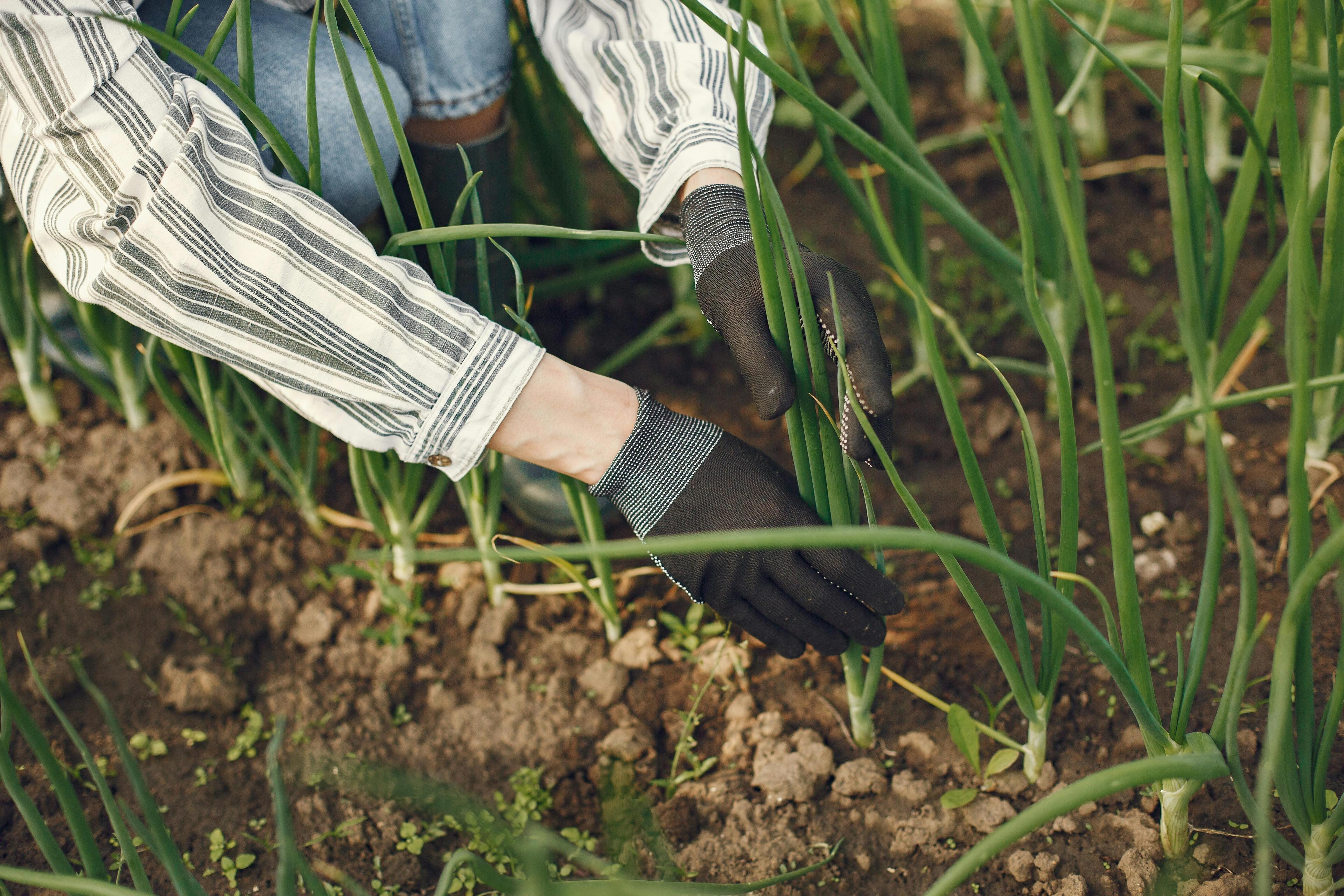
Two Wings
Rooted in Sustainability: A Survey with Maria Müller on Home Gardening and Sustainable Living
Welcome to our special survey with Maria Müller on home gardening and sustainable living:
As we celebrate Gardening Month this May, we're excited to share a unique opportunity to enrich your gardening journey and make a real impact. By supporting the 'Transforming the Environment' project, not only will you contribute to a greener future, but you'll also receive our free e-guide packed with home gardening tips and tricks, produced in collaboration with Maria Müller:
Donate now and receive your FREE e-guide today!
For every €30 you donate, you're not just planting a tree; you're providing comprehensive care, essential knowledge, and skills in Colombia. Receive this invaluable e-guide in your inbox after any contribution starting from €30.
Now, let's dive into our interview with Maria Müller from Garten Miez, a passionate home gardener and influencer whose commitment to a sustainable lifestyle through gardening is truly inspiring. Join us as we explore her insights and stories, starting with how she first got into gardening.
1- Can you tell us how you first got into gardening? What or who were your biggest inspirations?
I grew up in a small village where it's normal for everyone to have a big house with a large garden. My parents and grandparents, who lived next door, always did a lot of gardening. Flower, vegetable, and herb beds, a small pond, and fruit trees were part of my childhood. Back then, I honestly didn't appreciate this as much as I do today. You don't quite feel the spaciousness and sense of freedom in a small city garden as you do in a big one where the wind rustles through the leaves of the trees. Growing your own vegetables wasn't as exciting as a kid as it is today. My first attempts were with herbs on the windowsill of my first apartment—unsuccessful because they didn't find it cozy and grew rather crispy. Years later, with more patience, experience, and a garden, it worked out better! My parents and grandparents certainly inspired me, but so did the wonderful feeling of having created something myself and giving something back to the environment.
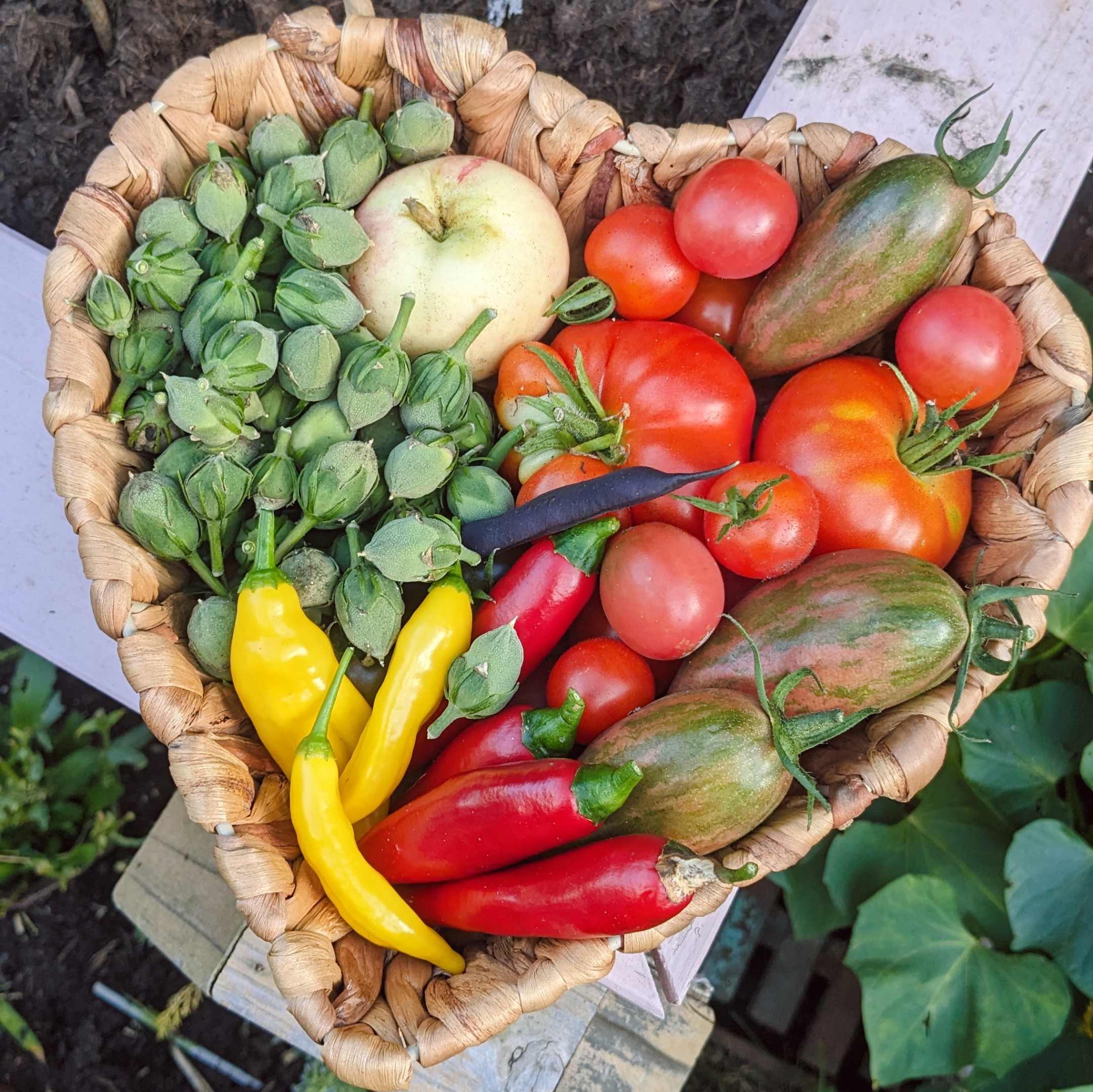
A colorful harvest of homegrown vegetables and fruits from Maria’s Garden.
2- What lifestyle changes have you noticed since you started gardening? How has it deepened your connection to nature?
I am more aware of many things outdoors: the colors in different seasons, the buds in spring, and the various leaves and flowers. Two years ago, our small garden was still fallow land. A few weeks ago, we stood on our little lawn and consciously noticed what a small paradise we had created and how the garden had developed. Everywhere there is buzzing, wild bees have moved in, the bushes are in full bloom for the first time this year, and we are eagerly anticipating our first peonies and dahlias in the bed. It's exciting! Overall, we are more aware of how our food is produced. We eat less fast food or industrial products, lean more towards organic, and realize that our own produce tastes best!
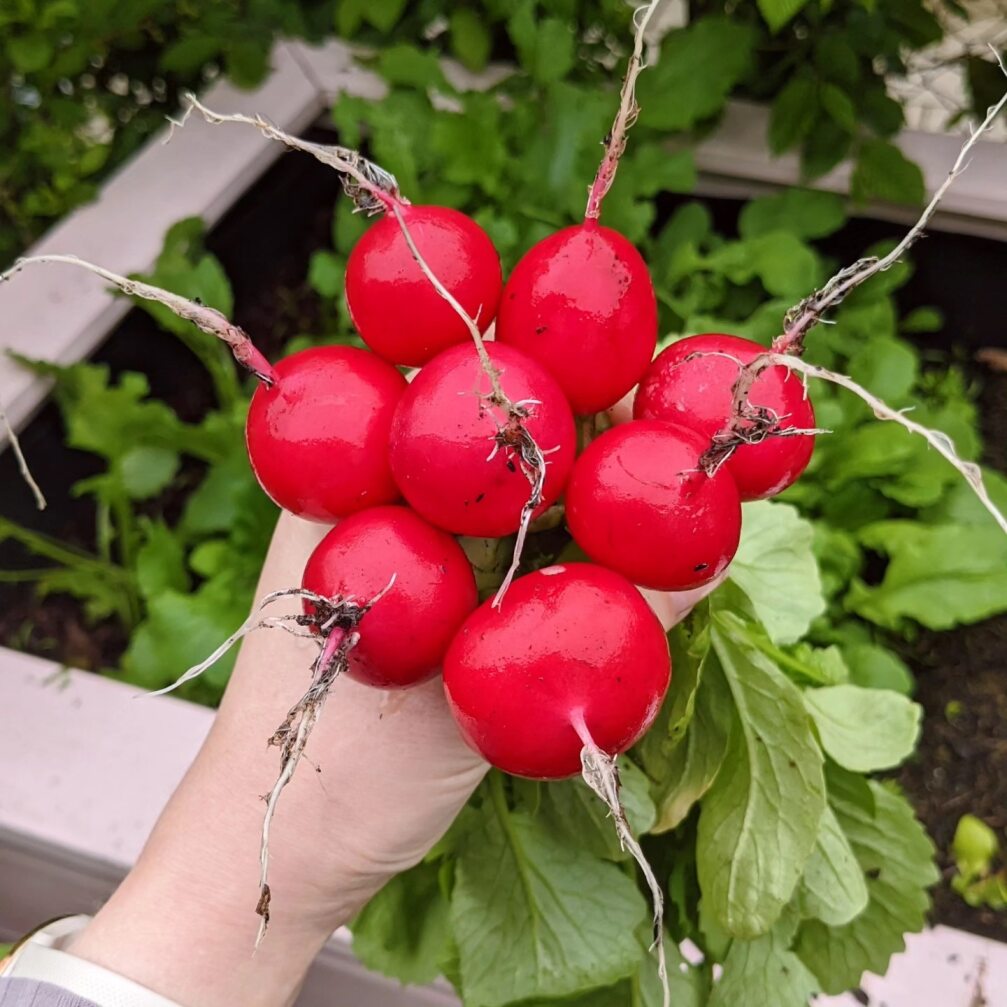
Freshly harvested radishes from Maria’s Garden: a rewarding result of sustainable home gardening.
3- On your website, gartenmiez.de, you regularly write blog posts, including a category called "Gartengeschichten", where you share stories from other gardens. You also have posts about your favorite recipes, sustainable gardening techniques, and more. How do you see your role in using your website and social media to educate and motivate your followers toward environmentally conscious living?
I think the goal shouldn't be to educate but rather to motivate by setting an example! It's like with children. They don't adopt what we say or prescribe, but what we demonstrate. I show on my channels how easy it can be to grow your own fruits and vegetables in small spaces, help nature, and keep discovering and trying new things. It's about the journey, not the destination. We learn something new daily, fail, and laugh at ourselves when we recall something Grandma said that could have avoided our mistake. I try to represent this as authentically as possible and report on our failures. After all, we don't set the rules in the garden; we're just playing along! We need to keep that in mind. We also value doing things ourselves and using resources we already have. You can buy everything new, and we can't always avoid new plants from the hardware store, but a lot is available and doesn't need to be purchased for a high price. Many of our materials and plants were found through exchanges like classified ads. For example, our raised bed is second-hand; we just spruced it up and repainted it.
4- What challenges have you faced maintaining sustainable practices in your garden, and how have you dealt with them?
It's not always easy to be 100% sustainable. Initially, I struggled with this until I asked myself what "sustainable" actually means. Is it organic? Without chemicals? Can I use plastic? Should everything always be for nature, or can I have a say too? Finding a good middle ground that keeps everyone happy was a game-changer. The plants, beneficial insects, and we are a unit and must find a balance. It works better or worse sometimes, but mostly quite well. We use different materials, ideally second-hand, though some things need to be new—like the windows for our early seedling covers. In the urban garden with shared spaces, many rules, and an underground garage under the garden, there's also the challenge that we can't do everything we want. We'd love to have more trees, but those with deep roots don't work with the garage. I think if everyone contributes to nature, a lot can be achieved!
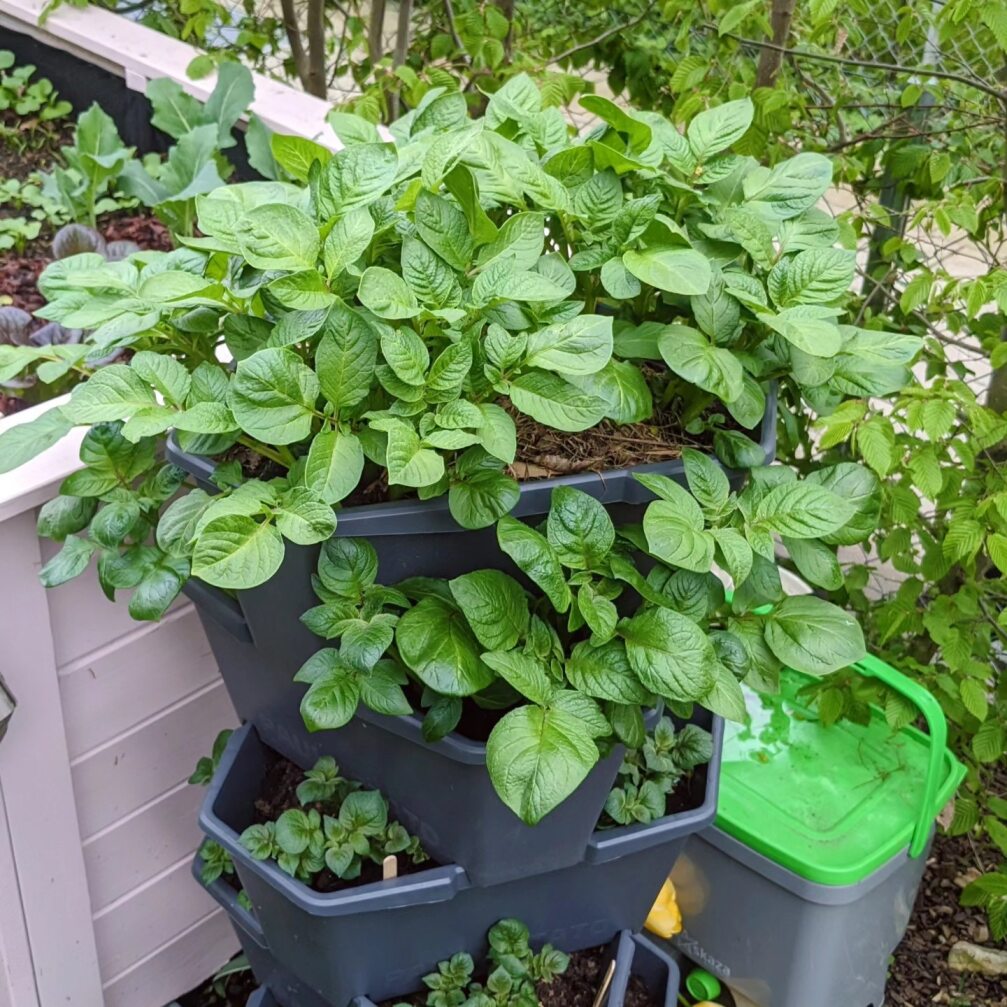
Thriving greenery in a vertical garden planter demonstrates how to maximize space in home gardening.
5- What trends do you see coming up in home gardening, and how might they impact both beginners and experienced gardeners?
Several trends will continue—natural gardening, for instance, using beneficial insects and bee hotels (but please get informed beforehand!). Raised beds are trendy and will remain so for a long time—they're just so practical! Some trends will arise out of necessity, like water-saving methods such as building your own Ollas. We're seeing more Mediterranean plants in gardens on social media—lemons, oranges, bananas, and pomegranates. New varieties are becoming available that can survive mild winters. Balcony solar panels and other ways to use solar energy shouldn't be overlooked. If you lack space like us, small portable solar panels work well. I'm focused on "Power Seeds," which will hopefully become a trend. These seeds are coated with all the vital nutrients they need in their first days to establish firm roots, giving young plants a perfect start. They also develop deeper roots, which reach the moist soil layers sooner. This way, even my lamb's lettuce succeeded—a milestone for me!
My fellow content creators and I lead the way in gardening trends, significantly influencing them. This is a huge responsibility, as few of us are professional gardeners. We aim to filter out the best trends and share tips with beginners and experts. But we also try out useless things and talk about them too.
6- Gardening can play an essential role not only in individual gardens but also in communities and the environment at large. Worldwide garden projects are proving to be effective tools for improving local ecosystems and strengthening communal bonds. "Transforming the Environment" is a crucial initiative among sustainable local projects initiated by FUNDAEC in Cali, Colombia. We at TwoWings support this initiative as part of our Planting Hope program. This project began in 2022 in response to COVID-19's socio-economic impact on vulnerable communities. A significant goal was to support families in setting up their own vegetable and fruit gardens so they could provide for themselves. Since the project's start, 13,522 trees have been planted, showing strong community involvement. In 2023, the project was strengthened by 150 planting events in eight regions, with 1,915 participants planting 9,202 trees. This year, seven workshops on environmental awareness were conducted, particularly in Valle del Cauca and Bolivar, emphasizing the initiative's commitment to community resilience and promoting ecological health. Reflecting on projects like FUNDAEC's "Transforming the Environment" initiative and your experiences with home gardening and maintaining a sustainable lifestyle, how can home gardening projects help transform the local environment and promote sustainable community practices?
Both initiatives show that knowledge, motivation, and collaboration are key. Most people tend to be skeptical when it comes to new initiatives, but results can sway even skeptics. Gardening brings neighbors together. Gardening together in urban plots, on rented fields, on company rooftops, in kindergartens, and in clubs creates a sense of community. People accomplish something together, bringing them closer and helping individuals through tough times. COVID-19 showed us how vital solidarity is. With each flower and tree planted, we all reconnect with nature, see things differently, and do something good for nature and its inhabitants. Every contribution counts!
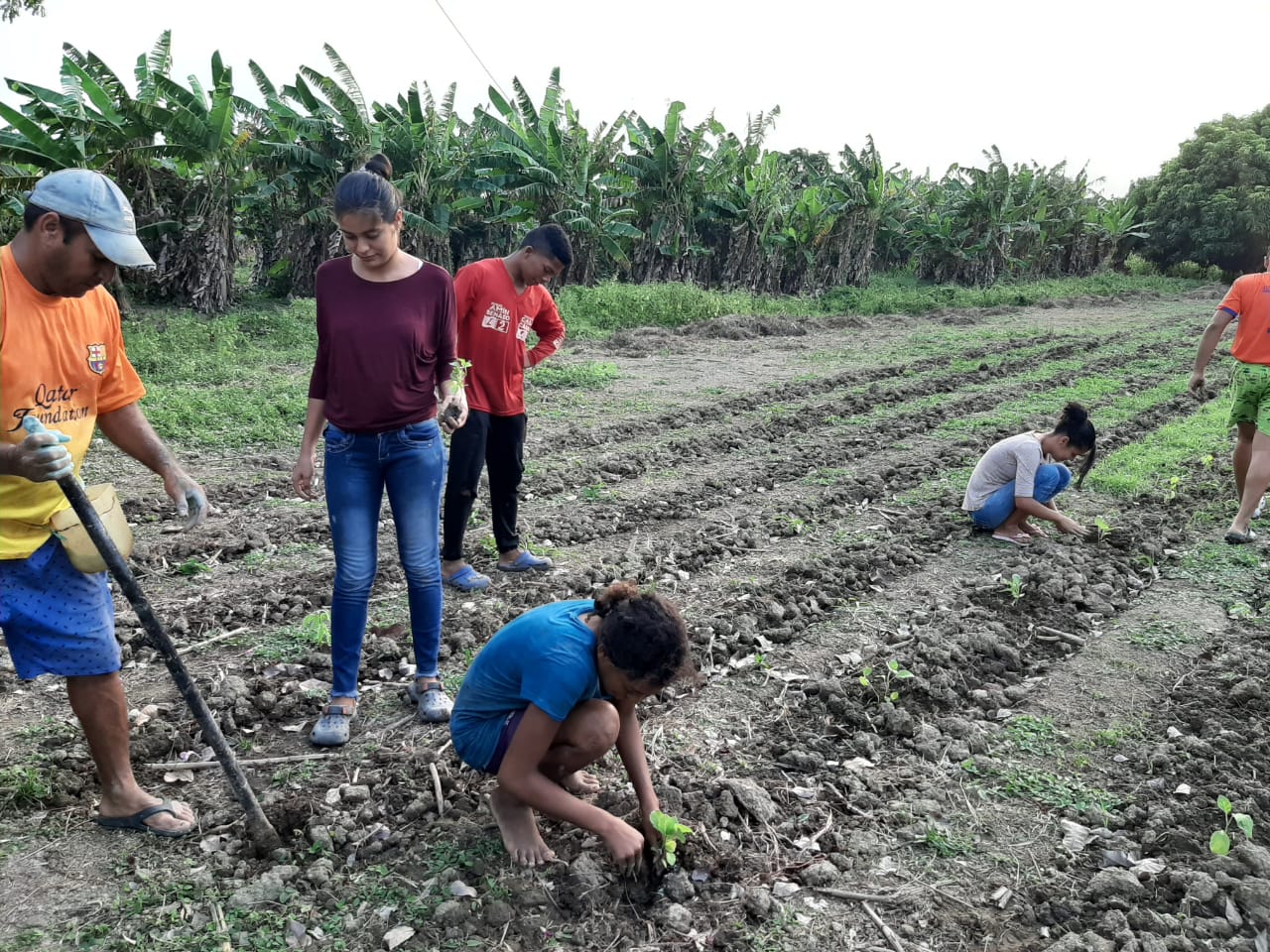
Community members in Colombia planting crops as part of 'Transforming the Environment' initiative.
7- How can gardening on a small scale be expanded to impact community development and environmental health positively?
We need to open our eyes to the opportunities available to us and show how small spaces can be utilized. It's beneficial to grow vegetables, fruit, trees, shrubs, and flowers even on balconies and rooftops. Every little space matters! We achieve this through inspiration and the right knowledge. Let's be honest: anyone buying a comprehensive gardening book is quickly overwhelmed and feels like they need hundreds of square meters to start. That's simply not true! We lead by example with all initiatives, and if we do our job well, our efforts will spread like wildfire. If each of us shows our neighbors that sustainable, natural gardening is possible with minimal effort and acts as an inspiring role model, we can create a chain reaction that cannot be stopped. An essential factor is our children—they will emulate what we show them. With these values, they have everything they need to look to the future positively!
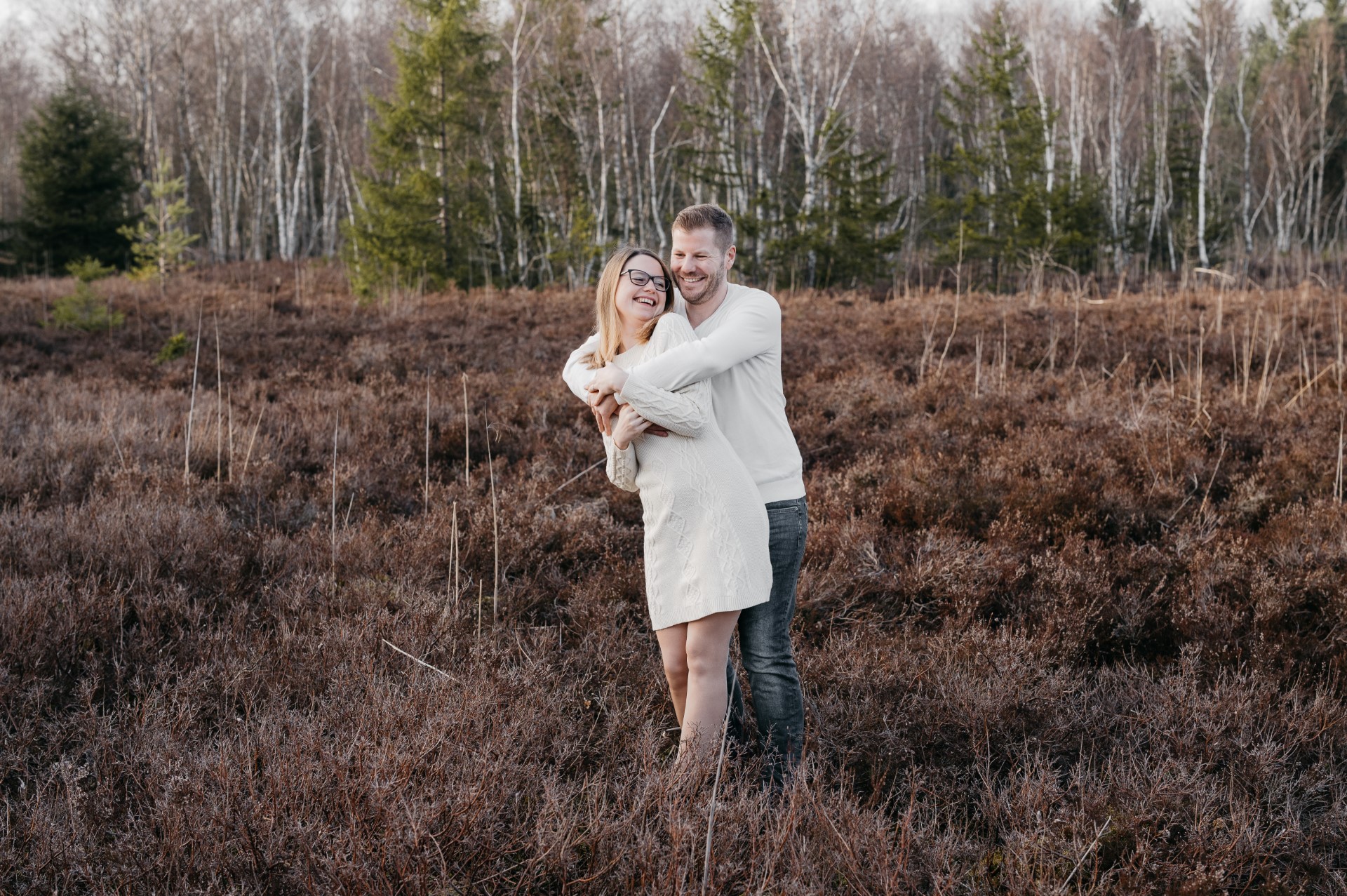
The lovely couple: Maria Müller and her fiancé, Matthias
8- For the final question, could you name something or someone who has been a source of inspiration in your life, particularly regarding your passion for gardening and sustainability?
Of course, my parents and grandparents, but also my past employers with great sustainability projects, social media, and the many wonderful people I've met through it. First and foremost is my fiancé, Matthias, who always has great DIY ideas. Niko of Bunter.Nutzgarten is always there to offer advice when something goes wrong in the garden, and Sabrina of Honigmanufaktur.mit.Herz is always inspiring when it comes to beneficial insects and bees. I can't forget all the wonderful gardeners I've met through my gardening stories, who have welcomed me into their homes, and the countless like-minded people I've encountered at conventions and events. We all learn from and with each other.
Thank you, Maria, for sharing your journey and inspiring others to cultivate their own sustainable gardens!

